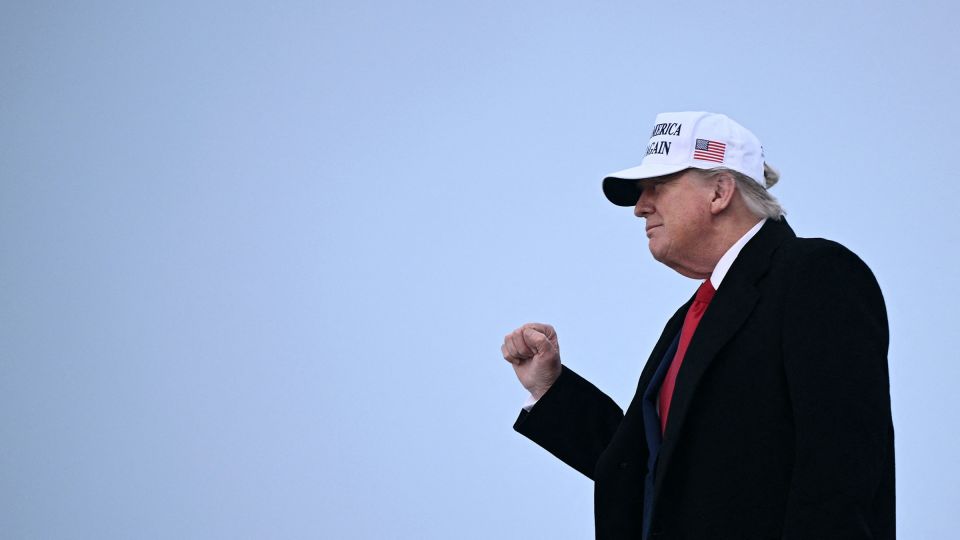President Donald Trump’s decision to open a two-week negotiating window before deciding on striking Iran sets off an urgent effort to restart talks that had been deadlocked when Israel began its bombing campaign last week.
The hope among Trump and his advisers is that Iran — under constant Israeli attack and having suffered losses to its missile arsenal — will relent on its hardline position and agree to terms it had previously rejected, including abandoning its enrichment of uranium, according to US officials.
The deferred decision, which came after days of increasingly martial messages from the president suggesting he was preparing to order a strike, also gives Trump more time to weigh the potential consequences — including the chance it could drag the United States into the type of foreign conflict he promised to avoid.
But negotiating a diplomatic solution in Trump’s condensed timeline appeared to face significant early hurdles.
Earlier this week, discussions were underway inside the White House to dispatch Middle East envoy Steve Witkoff and Vice President JD Vance to the region for talks with Iran. But as Trump grew wary that diplomatic efforts might succeed, the idea never resulted in scheduled talks, and both Vance and Witkoff remained in Washington as of Thursday.
Foreign ministers from Britain, Germany and France are traveling to Geneva on Friday to hold talks with Iranian representatives, and have been briefed on the details of the last deal Witkoff offered to Iran, which Tehran ultimately rejected before the Israeli strikes began. Among US officials, there were not high expectations of success for Friday’s meeting in Geneva, one US official said. But a White House official kept the door open to progress.
“This is a meeting between European leaders and Iran. The President supports diplomatic efforts from our allies that could bring Iran closer to taking his deal,” a White House official said.
Iran’s consistent message to the US since Israel began its strikes a week ago has been they will not engage in further talks with the US until the ongoing Israeli operation ends, two sources familiar with the messages said.
The US has so far not pressured Israel to halt its strikes, sources said. And Trump said this week that his message to Israeli Prime Minister Benjamin Netanyahu has been to “keep going.”
So far, Iran has offered no indication it is willing to move off its positions on enrichment, which it views as a red line. And as of Thursday, no official talks between the US and Iran were on the books, US officials said.
In putting off a decision, Trump appears to be placing more stock in a diplomatic solution that only a day earlier he appeared to suggest was out of reach.
“I think the president has made it clear he always wants to pursue diplomacy. But believe me, the president is unafraid to use strength if necessary,” press secretary Karoline Leavitt said Thursday after relaying Trump’s new two-week timeline. “And Iran and the entire world should know that the United States military is the strongest and most lethal fighting force in the world, and we have capabilities that no other country on this planet possesses.”
In a string of Situation Room meetings over the course of this week, Trump has quizzed advisers about the likelihood US bunker-buster bombs could entirely eliminate Iran’s underground nuclear facility at Fordow, and how long such an operation might last, according to people familiar with the conversations.
He has insisted repeatedly he wants to avoid taking action that could devolve into a multi-year conflict, something many of his own loyalists — including his onetime top strategist Steve Bannon, with whom the president had lunch Thursday — argue would be unavoidable should he make the decision to go ahead.
And while the president has seen the military options, he remains worried about a longer-term war. Any assessments on whether a strike would cause prolonged US engagement are predictive and, by their nature, not entirely satisfactory, one official said.
The new, within-two-weeks time frame for talks was not universally welcomed. An Israeli intelligence official expressed dismay that Trump would not make a decision – one way or the other.
“This is not helping,” the official said.
Trump will continue to convene top-level intelligence briefings over the coming days, returning to Washington early from a weekend trip to his property in New Jersey to be updated at the White House.
He has relied principally on his CIA Director John Ratcliffe and Joint Chiefs Chairman Gen. Dan Caine in meetings to discuss his options, according to people familiar with the matter.
But at the center of the diplomatic efforts will be Witkoff, the president’s friend and foreign envoy who has led negotiations meant to curb Tehran’s nuclear ambitions. Witkoff began direct messaging with his Iranian counterpart, Iranian Foreign Minister Abbas Araghchi, earlier this month and the administration has maintained some communications with Iranian officials over the past tense days as Trump weighed a strike.
The plan that Witkoff last offered to Tehran would have required Iran to eventually end all uranium enrichment on its soil, and on Thursday the White House said it still views a ban on Iranian uranium enrichment as necessary to a final deal.
As the Europeans head into Friday’s meeting, they will be “taking the temperature” on how receptive the Iranians are to finding a diplomatic solution, given their belief that strikes in both directions are not a solution, a European official said.
European leaders believe the risks of Iran’s nuclear program persist even amid Israel’s strikes because Tehran maintains nuclear know-how and may still have clandestine nuclear-related efforts that won’t get demolished by military strikes.
Meanwhile, most US diplomats who are not in Trump’s inner circle at the State Department have not been given specific guidance to offer US allies on the diplomatic efforts, a US official and a European diplomat said.
That has led to many frustrating discussions with foreign interlocutors as US diplomats have very few answers to give the allies as they try to determine their diplomatic and military posture in the region, pointing only to Trump’s own words.
As Trump has weighed his options, Secretary of State Rubio has been close by, also departing early from the Group of 7 summit in Canada along with the commander in chief earlier this week.
The top US diplomat spoke on Monday with his French, British and European Union counterparts about efforts to “encourage a diplomatic path that ensures Iran never develops a nuclear weapon,” according to State Department readouts of the calls.
On Wednesday, Rubio “compared notes” on the matter with the Norwegian foreign minister. Rubio met with British Foreign Secretary David Lammy on Thursday before Lammy departs for the Geneva talks, and the two “agreed Iran can never develop or acquire a nuclear weapon,” according to the State Department.
“Meeting with Secretary of State Rubio and Special Envoy to the Middle East Witkoff in the White House today, we discussed how Iran must make a deal to avoid a deepening conflict. A window now exists within the next two weeks to achieve a diplomatic solution,” Lammy said in a statement Thursday.
US officials, including Witkoff, have also been actively engaged with officials in the region, many of whom have offered their help in mediating a diplomatic path forward. Multiple sources said Iran has responded to messages from third parties, but their responses have not changed.
CNN’s Jamie Gangel contributed to this report.
For more CNN news and newsletters create an account at CNN.com
The post Trump’s new two-week negotiating window sets off scramble to restart stalled Iran talks appeared first on CNN.



